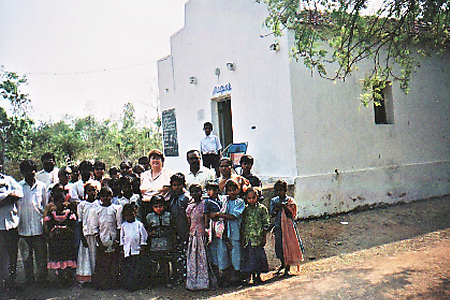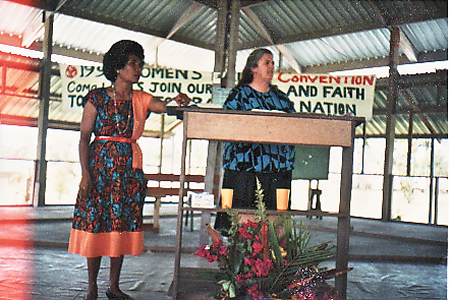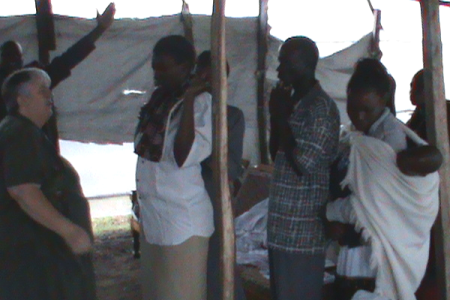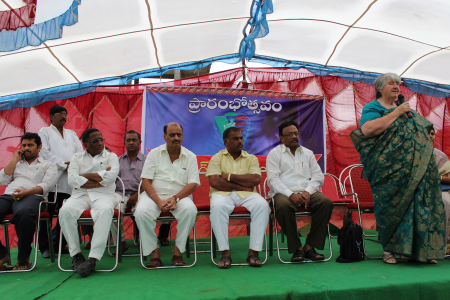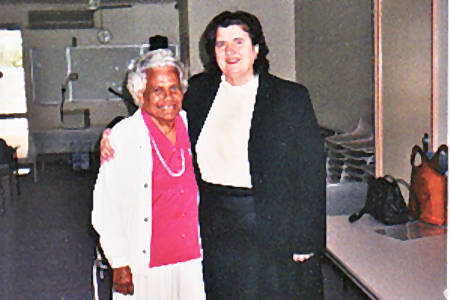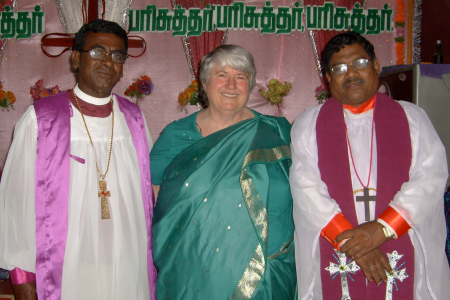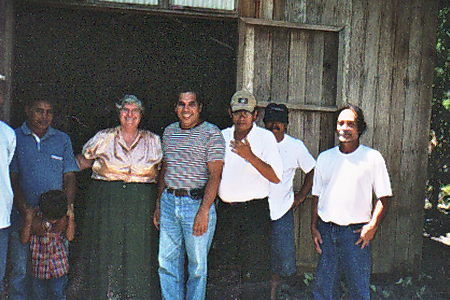The Bible and Eating Meat
Since a couple of vegans tried to hijack my Facebook post about the National Day of Repentance to push their own agenda and try to tie it to Christianity, let’s take a look at what the Bible REALLY says – and does – about eating animal flesh.
The Biblical account begins with creation, culminating in the creation of man in the Garden of Eden. In Genesis 1:29 God says, “Behold, I have given you every herb yielding seed, which is on the surface of all the earth, and every tree, which bears fruit yielding seed. It will be your food.” Obviously this was a vegetarian diet. Why? Simply because sin had not yet entered the world, therefore death, which came as a result of sin, (Romans 5:12) had not yet entered the world.
However, after the fall of man, when sin released death into the world, the picture changed. After the flood, we find God telling Noah this: “The fear of you and the dread of you will be on every animal of the earth, and on every bird of the sky. Everything that moves along the ground, and all the fish of the sea, are delivered into your hand. Every moving thing that lives will be food for you. As I gave you the green herb, I have given everything to you. But flesh with its life, that is, its blood, you shall not eat.” (Genesis 9:2-4) So here we have God clearly giving approval to a diet that includes the flesh of animals, with the one restriction that it must not be eaten “with … its blood” – in other words, it must not be eaten alive.
Then we come into the book of Exodus, and the story of God bringing His people out from Egypt. When the nine plagues had failed to move Pharaoh, God said that He would send a final plague, in which all the firstborn would be killed. He told his people to kill a lamb and put its blood on the doorposts and lintels of their houses so that the angel of death would pass over them (hence the name, Passover), and to eat the lamb that night. This is recorded in Exodus 12:3-10: “Speak to all the congregation of Israel, saying, ‘On the tenth day of this month, they shall take to them every man a lamb, according to their fathers’ houses, a lamb for a household; and if the household is too little for a lamb, then he and his neighbor next to his house shall take one according to the number of the souls; according to what everyone can eat you shall make your count for the lamb. Your lamb shall be without defect, a male a year old. You shall take it from the sheep, or from the goats: and you shall keep it until the fourteenth day of the same month; and the whole assembly of the congregation of Israel shall kill it at evening. They shall take some of the blood, and put it on the two door posts and on the lintel, on the houses in which they shall eat it. They shall eat the meat in that night, roasted with fire, and unleavened bread. They shall eat it with bitter herbs. Don’t eat it raw, nor boiled at all with water, but roasted with fire; with its head, its legs and its inner parts. You shall let nothing of it remain until the morning; but that which remains of it until the morning you shall burn with fire.” Here the Bible is clearly not just giving permission to eat meat, but actually commanding it. What’s more, this was not a “one-off.” In verse 14 they were told to make this an annual observation: “This day shall be to you for a memorial, and you shall keep it a feast to Yahweh: throughout your generations you shall keep it a feast by an ordinance forever.” From that point forward it would be impossible to be a vegetarian if you were an observant Jew!
Later, as the people of Israel were wandering through the wilderness, they started complaining: “The whole congregation of the children of Israel murmured against Moses and against Aaron in the wilderness; and the children of Israel said to them, “We wish that we had died by Yahweh’s hand in the land of Egypt, when we sat by the meat pots, when we ate our fill of bread, for you have brought us out into this wilderness, to kill this whole assembly with hunger.” (Exodus 16: 2-3) So what did God do? He sent them quail to eat – not just for a meal or a day, but for a whole month. “Say to the people, ‘Sanctify yourselves in preparation for tomorrow, and you will eat meat; for you have wept in the ears of Yahweh, saying, “Who will give us meat to eat? For it was well with us in Egypt.” Therefore Yahweh will give you meat, and you will eat. You will not eat just one day, or two days, or five days, or ten days, or twenty days, but a whole month, until it comes out at your nostrils, and it is loathsome to you; because you have rejected Yahweh who is among you, and have wept before him, saying, “Why did we come out of Egypt?” ’ ” (Numbers 11:18-20) and “A wind from Yahweh went out and brought quails from the sea, and let them fall by the camp, about a day’s journey on this side, and a day’s journey on the other side, around the camp, and about two cubits above the surface of the earth. The people rose up all that day, and all of that night, and all the next day, and gathered the quails. He who gathered least gathered ten homers; and they spread them all out for themselves around the camp. While the meat was still between their teeth, before it was chewed, Yahweh’s anger burned against the people, and Yahweh struck the people with a very great plague.” (Numbers 11:18-33) Note that God’s anger, and the resultant plague, were not because of them eating meat (God had given it to them to eat!) but because of their rebellion and complaining.
Then there is the sacrificial system, outlined in the second part of Exodus, and in Leviticus, Numbers, and Deuteronomy. There were far too many sacrifices and offerings required by the law for us to look at them in detail in a short article, but all of them required the killing of animals, and many of them required those bringing the offering to partake of the offering – in other words, to eat the animals that they offered.
When we come into the New Testament, the first thing we need to remember was that Jesus was an observant Jew. That meant that He would have eaten the Passover meal every year of His life from the time He was weaned. He would also have taken part in the normal Jewish feasts and sacrifices. Whilst we don’t have any specific recorded instances of Him eating meat, we do have a number of instances of Him eating – and feeding others with – fish. Matthew 14:16-21 records the feeding of the 5000, and Matthew 15:32-38 records the feeding of the 4000, in both cases the meal consisted of fish and bread.
After Jesus’ death and resurrection, Peter and his mates had gone back fishing. John 21:1-13 records how Jesus came and stood on the shore, then cooked the fish that they had caught and gave it to them for breakfast.
In the book of Acts, the leaders of the early church wrestled with the question of what to do with the new Gentile believers. Should they be circumcised and required to obey the Law of Moses? The conclusion they reached was that this was not necessary. Instead they wrote to the Gentile churches, “For it seemed good to the Holy Spirit, and to us, to lay no greater burden on you than these necessary things: that you abstain from things sacrificed to idols, from blood, from things strangled, and from sexual immorality, from which if you keep yourselves, it will be well with you. Farewell.” (Acts 15-28-29) Note that there was no prohibition against eating meat, unless they knew that it had been offered to idols.
Later, the apostle Paul had to deal with questions about food. In Romans 14:1-3 he writes, “ Now accept one who is weak in faith, but not for disputes over opinions. One man has faith to eat all things, but he who is weak eats only vegetables. Don’t let him who eats despise him who doesn’t eat. Don’t let him who doesn’t eat judge him who eats, for God has accepted him.”
However, he does go on in verses 13 to 21 to say that if a brother is offended by our eating (in his presence) then we should not eat. What does he mean by this? In this context, being offended has nothing to do with the kind of personal offence we see so often today. Rather, it means causing a brother (or sister) to move into sin. In verse 23 he says, “But he who doubts is condemned if he eats, because it isn’t of faith; and whatever is not of faith is sin.” In other words, if you believe something is wrong, then it is wrong for you, even if in the absolute sense it is right. (BTW, sorry, but it doesn’t work the other way round.) So if someone believes that eating meat is wrong, and you eat meat in front of him, and because of that he feels pressured to eat meat even though he thinks it is wrong, you have just led him into sin. In that situation, AND IN THAT SITUATION ONLY, Paul says it is better not to eat meat.
Clearly, putting all this together, the Bible is not against eating meat. If you want to be a vegetarian, vegan, fruitarian, or whatever, that is fine. But don’t try to tie your arguments to a Biblical foundation, because they simply won’t stick.







